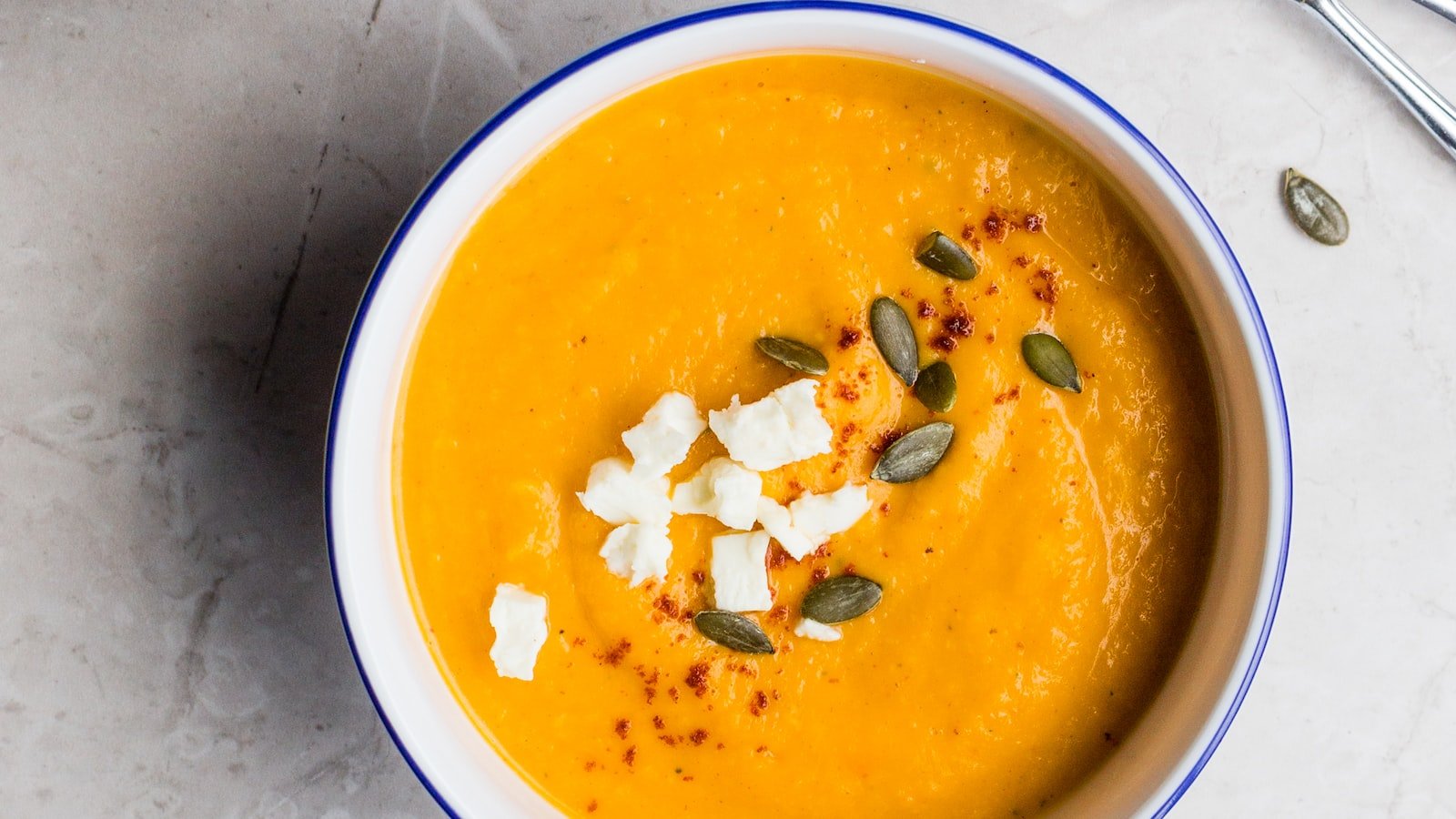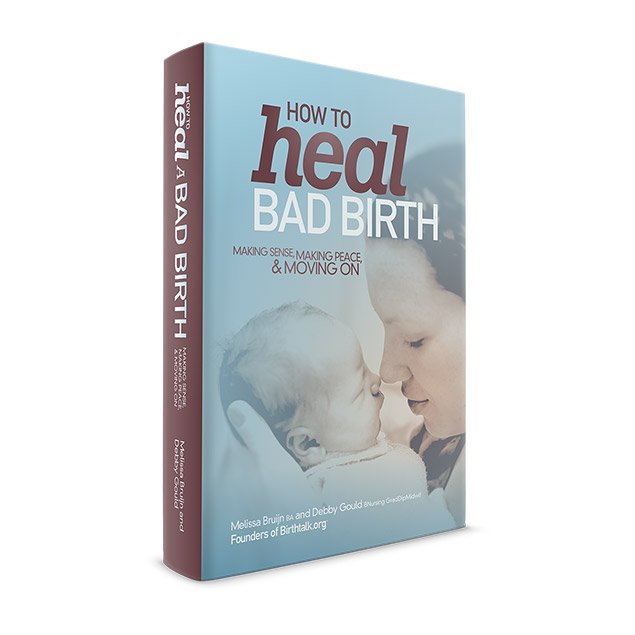Being a new mom can be both exhilarating and exhausting. As you navigate the precious early moments with your little bundle of joy, taking care of yourself might slip to the bottom of your never-ending to-do list. However, it is essential now more than ever to prioritize your post-workout nutrition. Not only does it help you recover and regain strength after a strenuous exercise session, but it also plays a crucial role in your baby’s health and development. In this article, we will explore the significance of post-workout nutrition for both mom and baby, shedding light on the reasons why it should be a cornerstone of your postnatal fitness journey. So let’s dive in and uncover the secrets to nourishing your body and nurturing your little one simultaneously!
Table of Contents
- The Impact of Post-Workout Nutrition on Maternal Health and Recovery
- Optimizing Post-Workout Nutrition for Sustained Breastfeeding and Milk Production
- Essential Nutrients to Support Postpartum Healing and Infant Development
- Smart Strategies for Balancing Post-Workout Nutrition and Caloric Intake
- Key Recommendations for Nourishing Mom and Baby after Exercise
- Q&A
- Final Thoughts

The Impact of Post-Workout Nutrition on Maternal Health and Recovery
Maintaining a healthy and active lifestyle during pregnancy is not only beneficial for the mother but also plays a crucial role in the overall well-being of the growing baby. However, it is essential to understand the importance of post-workout nutrition to ensure proper maternal health and recovery. This phase becomes especially critical as it directly impacts both the mother’s physical and mental well-being.
After a strenuous workout session, the body requires essential nutrients to replenish energy levels and facilitate muscle recovery. Similarly, for expectant mothers, vigorous exercises can often result in depleting glycogen stores and muscle damage. Adequate post-workout nutrition can aid in replenishing glycogen stores, promoting muscle synthesis, and enhancing overall recovery.
When considering post-workout nutrition for maternal health, it is imperative to focus on nutrient-rich foods. Here are some key elements to consider:
- Hydration: Proper hydration is vital for post-workout recovery. Drinking plenty of water helps restore fluid balance and prevents dehydration.
- Protein Intake: Including a healthy source of protein in post-workout meals aids in muscle repair and growth. Lean meats, eggs, dairy products, and plant-based alternatives such as legumes and tofu are excellent options.
- Carbohydrates: Consuming complex carbohydrates like whole grains, fruits, and vegetables helps replenish glycogen stores and provides sustained energy throughout the day.
- Healthy Fats: Incorporating sources of healthy fats like avocado, nuts, and seeds into post-workout meals aids in nutrient absorption and supports hormone production.
By prioritizing an appropriate post-workout nutrition regimen, expectant mothers can enhance both their physical recovery and mental well-being, ensuring a healthier and more fulfilling pregnancy journey.

Optimizing Post-Workout Nutrition for Sustained Breastfeeding and Milk Production
Maintaining an optimal post-workout nutrition routine is crucial for sustaining breastfeeding moms and ensuring adequate milk production. It is important to fuel the body with nutrient-dense foods that promote recovery and provide essential components for milk synthesis.
Fuel Your Body Right:
With breastfeeding demanding additional energy, it is crucial to consume enough calories to meet the needs of both exercise recovery and milk production. Prioritize a mix of carbohydrates, proteins, and healthy fats to replenish glycogen stores, repair muscle tissue, and support hormonal balance.
- Include complex carbohydrates like whole grains, fruits, and vegetables to provide sustained energy and aid in recovery.
- Choose lean sources of protein such as poultry, fish, legumes, and dairy products to support muscle repair and growth.
- Incorporate healthy fats like avocados, nuts, and olive oil to aid in nutrient absorption and hormone production.
Hydration Is Key:
Maintaining proper hydration is essential for both exercise recovery and milk production. Remember to drink plenty of fluids throughout the day, especially during and after workouts. Aim for at least 8-10 glasses of water each day and consider incorporating coconut water, herbal teas, or lactation-supportive drinks to replenish electrolytes and boost milk supply.
Supplement Wisely:
In addition to a well-rounded diet, certain supplements can aid in post-workout recovery and support milk production. Before incorporating any supplements, it is advisable to consult with a healthcare professional or a lactation specialist to ensure they are safe and appropriate for your individual needs and baby’s wellbeing.
- Omega-3 fatty acids: Found in fish oil or algae-based supplements, they can help reduce inflammation, support brain development in infants, and promote breast milk quality.
- Probiotics: These beneficial bacteria can assist in gut health, support immune function, and potentially reduce the risk of colic in breastfed babies.
- Calcium and vitamin D: Essential for maintaining bone health, these nutrients are particularly important for breastfeeding moms to ensure both their own and their baby’s needs are met.
By optimizing your post-workout nutrition, you can support sustained breastfeeding and promote healthy milk production. Remember to listen to your body, adjust your nutrition accordingly, and seek professional guidance when needed. A well-nourished mom is a happy mom, and a well-nourished baby is a thriving baby!

Essential Nutrients to Support Postpartum Healing and Infant Development
Ensuring proper nutrition during the postpartum period is crucial for the healing and recovery of new mothers, as well as supporting optimal growth and development in their infants. Here are some essential nutrients that play a significant role in postpartum healing and infant development:
- Protein: Protein is vital for tissue repair and growth. Include lean sources such as chicken, fish, beans, and legumes in your diet.
- Iron: Iron is essential for replenishing blood lost during childbirth and promoting energy levels. Foods rich in iron include spinach, red meat, lentils, and fortified cereals.
- Omega-3 Fatty Acids: These healthy fats are beneficial for both mom and baby. They promote brain development in infants and aid in reducing postpartum depression in mothers. Include fatty fish like salmon, chia seeds, and walnuts in your meals.
- Calcium: Calcium supports bone health for both mother and child. Dairy products, tofu, leafy greens, and fortified plant-based milks are excellent sources of calcium.
- Vitamin C: Vitamin C plays a vital role in wound healing and boosting the immune system. Incorporate citrus fruits, tomatoes, bell peppers, and dark leafy greens into your diet.
- Folate: Folate is crucial for the development of the baby’s neural tube. It can be found in leafy greens, citrus fruits, and fortified grains.
Remember, prioritize a well-balanced diet that includes a variety of nutrient-rich foods. Consult with your healthcare provider or a registered dietitian for personalized recommendations based on your specific needs.
Smart Strategies for Balancing Post-Workout Nutrition and Caloric Intake
Proper nutrition after a workout is essential for maximizing the benefits of your exercise routine. It not only fuels your body for recovery but also helps in muscle growth and repair. However, finding a balance between post-workout nutrition and caloric intake can be tricky. Here are some smart strategies to help you achieve that balance:
- Focus on nutrient-dense foods: Instead of consuming empty calories, opt for foods that are rich in essential nutrients like lean proteins, whole grains, fruits, and vegetables. These foods provide the necessary vitamins, minerals, and antioxidants while keeping your caloric intake in check.
- Timing is key: Aim to eat within 30 minutes to an hour after your workout. This window is when your body is most receptive to absorbing nutrients and replenishing glycogen stores. Plan your meals accordingly and have a post-workout snack or meal ready to go.
- Hydrate, hydrate, hydrate: Replenishing your fluids is just as important as refueling your body with nutrients. Make sure to drink plenty of water before, during, and after your workout to stay hydrated and support proper digestion and nutrient absorption.
- Don’t fear healthy fats: Including healthy fats in your post-workout meals can help with satiety and provide essential fatty acids that support hormonal balance and joint health. Avocados, nuts, seeds, and olive oil are great options to consider.
Remember, finding the right balance of post-workout nutrition and caloric intake is unique to each individual. It’s crucial to listen to your body, monitor your progress, and make adjustments as necessary. By following these smart strategies, you can maximize the benefits of your workouts while nourishing your body in a mindful and balanced way.
Key Recommendations for Nourishing Mom and Baby after Exercise
After engaging in exercise, it is crucial for both mom and baby to replenish their bodies with proper nutrition. Here are some key recommendations to help nourish and support their post-workout recovery:
- Hydrate: Drink plenty of water to replace the fluids lost during exercise. Staying hydrated is essential for optimal functioning of both mom and baby’s bodies.
- Refuel with Protein: Protein is essential for muscle repair and growth. Include lean sources of protein such as chicken, fish, tofu, or beans in your post-workout meal to support tissue recovery.
- Load up on Fruits and Vegetables: Fruits and vegetables provide essential vitamins, minerals, and antioxidants that help reduce inflammation and promote overall health. Aim for a colorful plate filled with a variety of fresh produce.
- Incorporate Healthy Fats: Include foods rich in healthy fats, such as avocados, nuts, and seeds, in your post-exercise meal. These fats provide energy and support brain development.
- Don’t Forget the Carbohydrates: Carbohydrates are the primary source of energy for exercising muscles. Include complex carbohydrates like whole grains, oats, and quinoa in your meals to replenish glycogen stores.
- Consider Supplements: Talk to your healthcare provider about whether you may benefit from specific supplements, such as prenatal vitamins, omega-3 fatty acids, or calcium, to support your unique nutritional needs during this time.
Remember, nourishing yourself and your baby after exercise is essential for their growth and development. Prioritize a well-balanced diet that incorporates a variety of nutrient-rich foods to support both your physical and mental well-being.
Q&A
Why is post-workout nutrition important for moms?
Post-workout nutrition is crucial for moms as it aids in muscle recovery, replenishes energy stores, and supports overall health and well-being. It helps mothers rebuild their strength and endurance after exercise, ensuring they have enough energy to take care of their baby.
How does post-workout nutrition benefit the baby?
By providing essential nutrients through post-workout nutrition, moms support their overall health, which indirectly benefits the baby. This ensures that the mother can continue to provide proper care, nourishment, and support to their little one.
What nutrients should moms include in their post-workout meals?
Moms should focus on consuming a combination of carbohydrates and protein to nourish their bodies after a workout. Carbohydrates help replenish energy stores, while protein aids in muscle repair and recovery.
Are there any specific foods that are particularly beneficial for post-workout nutrition?
Foods such as lean proteins like chicken or fish, whole grains like quinoa or brown rice, and fruits and vegetables are excellent choices for post-workout nutrition. These foods provide the necessary nutrients and help moms recover efficiently.
Is timing important for post-workout nutrition?
Yes, timing is crucial for post-workout nutrition. Ideally, moms should consume a healthy meal or snack within 30–60 minutes after their workout to optimize their recovery and refuel their bodies.
What are the potential risks of neglecting post-workout nutrition?
Neglecting post-workout nutrition can lead to muscle soreness, fatigue, decreased energy levels, and compromised immune function. It may also impact milk production in breastfeeding moms.
Can moms with specific dietary needs still benefit from post-workout nutrition?
Absolutely! Moms with specific dietary needs can customize their post-workout meals to suit their requirements. Consulting with a registered dietitian can ensure they receive the right nutrients, even with dietary restrictions or preferences.
Are there any other considerations for moms when it comes to post-workout nutrition?
Hydration is crucial for moms, especially during and after a workout. Drinking enough water is essential to support optimal recovery and ensure overall well-being. Additionally, listening to their body’s hunger cues and fueling accordingly is vital for moms to meet their nutritional needs.
Final Thoughts
As the sun sets on another invigorating workout, it’s time to bid farewell to the importance of post-workout nutrition for both mom and baby. We have embarked on a journey of understanding the tremendous role that nourishment plays in the lives of these two incredible individuals. From the first step out of the gym to the last drop of a protein shake, we have delved into the depths of this vital aspect of their well-being.
Like two celestial bodies dancing in harmony, the needs of a mother and her precious little one are forever intertwined. It is not only the mother’s strength and vitality that is at stake but also the development and growth of the tiny miracle she carries within. This delicate bond requires nurturing beyond the realm of exercise alone; it demands attention to the wonders of post-workout nutrition.
Through the pages of this article, we have discovered the secrets of replenishment, the ingredients that harmoniously combine to create a symphony of health and prosperity. Vitamins, minerals, and essential nutrients have emerged as the building blocks of recovery and growth, knitting together the intricate fibers of the mother-baby connection.
But it is not only the physical aspect that we have explored. We have delved deep into the emotional and psychological dimensions, recognizing that proper post-workout nutrition plays a crucial role in a mother’s mental well-being. It empowers her with the energy and peace of mind needed to navigate the beautiful yet challenging journey of motherhood.
From scrumptious post-workout meals brimming with antioxidants, to the restorative power of hydration, we have celebrated the diversity of options available to moms in their quest for optimal nourishment. We have emphasized the importance of listening to one’s body, of embracing wholesome selections that resonate with individual needs and lactation requirements.
As we bring this journey to an end, let us remember that post-workout nutrition is not merely a means to an end, but a celebration of life. It is a reminder that every mile run, every weight lifted, and every exercise completed is a testament to an unwavering commitment to health, for both mom and baby.
So, as we part ways, let us carry with us the knowledge that the importance of post-workout nutrition transcends a mere routine. It is a testament to the strength, love, and dedication that radiates from within every mother. May this knowledge be the fuel that propels moms and babies to new heights, nourishing their bodies and enriching their souls.
Farewell, dear reader, as we bid adieu to the wonders of post-workout nutrition for mom and baby. May your journey be filled with vitality and the nourishment that sustains not only the body but the eternal bond between mother and child.
As an affiliate, my content may feature links to products I personally use and recommend. By taking action, like subscribing or making a purchase, you’ll be supporting my work and fueling my taco cravings at the same time. Win-win, right?
Want to read more? Check out our Affiliate Disclosure page.